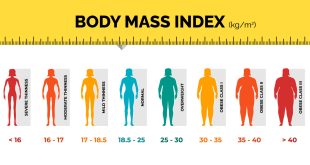Attention Deficit Hyperactivity Disorder (ADHD) is a neurodevelopmental condition affecting both children and adults. Individuals with ADHD often experience difficulties with attention, hyperactivity, and impulsivity, which can significantly impact their daily lives. People commonly prescribe ADHD medications to manage these symptoms and enhance their quality of life. However, as with all medications, we must understand and manage their potential side effects. In this article, we will explore the various ADHD medications, their common side effects, and strategies for mitigating them.
Understanding ADHD medications
ADHD medications primarily work by altering the levels of neurotransmitters in the brain, such as dopamine and norepinephrine, which play key roles in attention and impulse control. There are two main types of ADHD medications:
- Stimulants: These are the most commonly prescribed medications for ADHD and include drugs like methylphenidate (e.g., Ritalin, Concerta) and amphetamine-based medications (e.g., Adderall, Vyvanse). Stimulants are generally effective in managing symptoms quickly, often within 30 to 60 minutes after ingestion.
- When stimulants are ineffective or cause intolerable side effects, doctors prescribe non-stimulants. Non-stimulant medications include atomoxetine (Strattera), guanfacine (Intuniv), and clonidine (Kapvay). They typically have a slower onset of action but can be beneficial for certain individuals with ADHD.
Common Side Effects of ADHD Medication
While ADHD medications can be highly effective, they can also cause a range of side effects. It’s essential to note that not everyone will experience these side effects, and their severity can vary from person to person. Some common side effects include:
- Insomnia: Stimulant medications, in particular, can interfere with sleep patterns, leading to difficulty falling asleep or staying asleep.
- Decreased Appetite: Many individuals experience a decrease in appetite, which can lead to weight loss, especially during the initial phases of treatment.
- Irritability or Mood Swings: Some people may become irritable or experience mood swings when taking ADHD medications, particularly stimulants.
- Headaches: Headaches are a relatively common side effect, although they typically subside as the body adjusts to the medication.
- Some individuals may experience nausea, stomachaches, or digestive issues.
- Increased Heart Rate and Blood Pressure: Stimulant medications can elevate heart rate and blood pressure, which may be a concern for individuals with pre-existing cardiovascular conditions.
- Tics or Tourette Syndrome: Stimulant medications may exacerbate pre-existing tics or, in some cases, trigger new tic disorders.
Managing ADHD Medication Side Effects
Healthcare providers can often manage the side effects of ADHD medications effectively, despite their potential concern. Here are some strategies for managing common side effects:
- Adjusting Dosage and Timing: Sometimes, simply adjusting the dosage or timing of medication administration can alleviate side effects such as insomnia or decreased appetite.
- Monitoring and Support: Regular monitoring by a healthcare provider is critical to assessing the medication’s effectiveness and promptly managing any emerging side effects.
- Lifestyle Modifications: Encouraging a healthy diet and ensuring adequate hydration can help mitigate side effects like decreased appetite and gastrointestinal issues.
- Behavioral Strategies: Cognitive-behavioral techniques and therapy can complement medication management, helping individuals cope with emotional and behavioral challenges.
- Alternative Medications: If side effects persist or are intolerable, switching to a different medication or formulation (e.g., extended-release) may be considered.
- Addressing Co-Existing Conditions: Individuals with ADHD often have co-existing conditions such as anxiety or depression. Addressing these conditions alongside ADHD treatment can improve overall outcomes and reduce medication-related complications.
Long-Term Considerations
In addition to managing immediate side effects, it’s essential to consider the long-term implications of ADHD medication use.
- Growth and Development: In children and adolescents, monitoring growth and development is critical in children and adolescents, as stimulant medications can temporarily suppress appetite and growth. However, studies suggest that these effects are typically minimal and may not affect final adult height.
- Cardiovascular Health: People with pre-existing cardiovascular conditions or risk factors should regularly monitor their heart rate and blood pressure.
- Psychiatric Symptoms: Individuals with ADHD may be at higher risk for psychiatric conditions such as anxiety or substance abuse. It is important to monitor these conditions and adjust treatment as needed.
Types of ADHD MedicationsADHD medications are broadly categorized into stimulants and non-stimulants.1. Stimulants: Stimulant medications are the most commonly prescribed for ADHD and have a long history of efficacy. They work by increasing the levels of certain neurotransmitters, primarily dopamine and norepinephrine, in the brain. These chemicals play crucial roles in attention and behavior regulation. Stimulants are divided into two main classes:
Methylphenidate-based medications: These include brands like Ritalin, Concerta, and Focalin. They are often the first line of treatment and are available in various forms, including short-acting, intermediate-acting, and long-acting formulations.Amphetamine-based medications: Examples include Adderall, Vyvanse, and Dexedrine. Like methylphenidate-based medications, these are available in different durations of action to suit individual needs.
2. Non-Stimulants: For individuals who do not respond well to stimulants or experience adverse side effects, non-stimulant medications are an alternative. These medications typically have a different mechanism of action, influencing norepinephrine levels without the stimulating effects on dopamine.Atomoxetine (Strattera): This selective norepinephrine reuptake inhibitor (SNRI) helps increase attention and decrease impulsivity and hyperactivity.Alpha-2 adrenergic agonists: Clonidine (Kapvay) and guanfacine (Intuniv) are primarily used to manage symptoms of hyperactivity and impulsivity and can be particularly helpful for children.
Benefits of ADHD MedicationThe primary benefit of ADHD medication is symptom control. For many individuals, medication can:Improve Focus and Attention: Medications can help individuals concentrate better on tasks, enhancing academic and occupational performance.Reduce Hyperactivity and Impulsivity: By regulating brain activity, medications can help individuals exhibit more controlled behavior, reducing disruptive actions.Enhance Quality of Life: Better symptom management can lead to improved self-esteem, social interactions, and overall functioning.
Considerations and Side EffectsWhile ADHD medications are effective, they are not without potential side effects and considerations:Side Effects: Common side effects of stimulant medications include insomnia, appetite suppression, weight loss, and increased heart rate. Non-stimulants may cause fatigue, mood swings, or gastrointestinal issues.Individual Response: Medication effectiveness and tolerability can vary greatly. Some individuals may respond better to certain medications or require a combination of therapies.Long-Term Use: The long-term effects of ADHD medications are still being studied, but current evidence suggests that they are safe for long-term use under medical supervision.Medical Supervision: Regular monitoring by a healthcare provider is essential to adjust dosages, manage side effects, and ensure the medication’s effectiveness.
Conclusion
ADHD medications are valuable tools for managing ADHD symptoms and improving quality of life for many individuals. However, like all medications, they can cause side effects that require careful management and monitoring. By working closely with healthcare providers, individuals with ADHD and their families can navigate potential side effects effectively, ensuring that the benefits of treatment outweigh any risks. It’s essential to stay informed, communicate openly with healthcare providers, and prioritize holistic approaches to treatment that include lifestyle modifications and behavioral strategies. With proper management, ADHD medications can contribute significantly to improved focus, behavior, and overall well-being.




